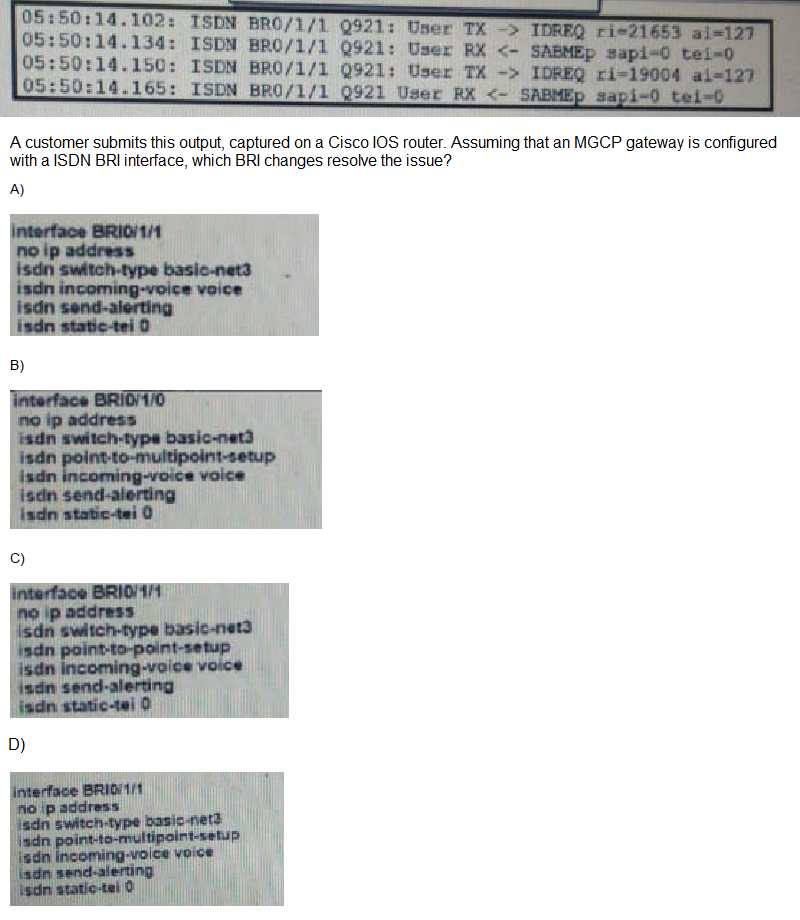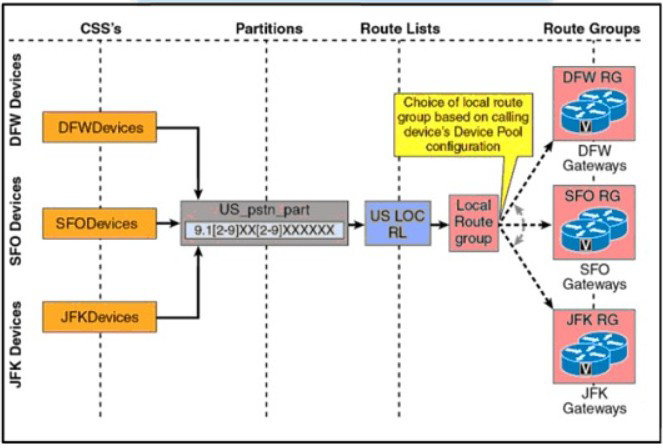
- Email support@dumps4free.com

When a remote office location is set up with limited bandwidth resources, which codec
carries the most voice calls?
A.
G.722
B.
G.711
C.
G.723
D.
G.729
G.729
Refer to the exhibit.

A.
Option A
B.
Option B
C.
Option C
D.
Option D
Option C

Refer to the exhibit A user takes a phone from San Francisco to New York for a short
reassignment. The phone was set up to use the San Francisco device pool, and device
mobility is enabled on the Cisco UCM. The user makes a call that matches a route pattern
in a route list that contains the Standard Local Route Group. To where does the call
retreat?
A.
The call egresses in New York because the device automatically is assigned a New
York device pool and uses the local gateway
B.
The call egresses in San Francisco because the user uses device mobility and is
allowed to roam while still keeping the number and resources assigned in San Francisco
C.
The call fails because the Standard Local Route Group is being used only if no
configuration is set for the device pools
D.
The call fails because device mobility is turned on. and the phone is not configured in
New York The engineer must configure which sites the device should be roaming to
The call egresses in San Francisco because the user uses device mobility and is
allowed to roam while still keeping the number and resources assigned in San Francisco
When a user dials a number with a phone that is registered to the Cisco Unified
Communications Manager, what is the default timeout before the number is sent?
A.
3 seconds
B.
15 seconds
C.
10 seconds
D.
5 seconds
15 seconds
Which configuration step is necessary for a Cisco SIP phone to synchronize its time with a
specific source?
A.
Change the Time Zone from “America/Los_Angeles” to “Etc/GMT+8”.
B.
Add a phone NTP Reference to the date/time Group.
C.
Assign the device to the correct region.
D.
Change the time format from 24-hour to 12-hour.
Add a phone NTP Reference to the date/time Group.
| Page 13 out of 55 Pages |
| Previous |